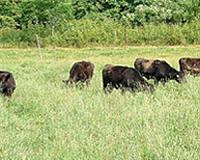 |
Geneva, Switzerland (UPI) Mar 8, 2011 Food production in poor countries can be doubled within 10 years if small farms switch to ecological agriculture, a study issued by the United Nations says. "Agroecological" projects have led to an average crop yield increase of 80 percent in 57 developing countries, with an average increase of 116 percent in Africa, says the U.N. report released Tuesday in Geneva, Switzerland. In Africa, crop yields doubled over a period of 3-10 years, Olivier De Schutter, U.N. special rapporteur on the right to food and author of the report, said in a statement. "Conventional farming relies on expensive inputs, fuels climate change and is not resilient to climatic shocks," de Schutter said. "It simply isn't the best choice anymore today." The report comes as food prices are near record highs, with the United Nations estimating that the world, now populated by 6.7 billion people, will expand to 9 billion by 2050. Feeding them will be a major challenge under a business-as-usual scenario. Ecological agriculture could make things easier, the U.N. report says. In Japan, farmers have eliminated pesticides from their rice paddies and replaced them with duck and fish that eat weeds, seeds and insects, while providing fertilizer with their droppings. In West Africa, stone barriers built alongside fields have slowed down runoff water during the rainy season, allowing an improvement of soil moisture, the replenishment of water tables and reductions in soil erosion. In Zambia and Malawi, a country that experienced a dramatic famine six years ago, farmers planted a fertilizer tree near maize fields and saw double or even triple yields. The tree, native to the region, takes nitrogen from air and stores it within its leaves, which, when they drop, fertilize the ground. De Schutter said agroecology is becoming increasingly popular even in developed countries such as United States, Germany or France. "However, despite its impressive potential in realizing the right to food for all, agroecology is still insufficiently backed by ambitious public policies and consequently hardly goes beyond the experimental stage," he said. Governments need to back ecological farming by empowering small-scale farmers in poor countries who can then make a real difference on the ground, the report says. "If key stakeholders support the measures identified in the report, we can see a doubling of food production within 5 to 10 years in some regions where the hungry live," De Schutter says. "Whether or not we will succeed this transition will depend on our ability to learn faster from recent innovations. We need to go fast if we want to avoid repeated food and climate disasters in the 21st century."
Share This Article With Planet Earth
Related Links Farming Today - Suppliers and Technology
 Grazing Of Cattle Pastures Can Improve Soil Quality
Grazing Of Cattle Pastures Can Improve Soil QualityWatkinsville GA (SPX) Mar 08, 2011 A team of U.S. Department of Agriculture (USDA) scientists has given growers in the Piedmont guidance on how to restore degraded soils and make the land productive. Researchers with the USDA's Agricultural Research Service (ARS) found that if cattle are managed so that they graze moderately, soil quality can be restored and emissions of carbon dioxide (a greenhouse gas) can be reduced. ARS ... read more |
|
| The content herein, unless otherwise known to be public domain, are Copyright 1995-2010 - SpaceDaily. AFP and UPI Wire Stories are copyright Agence France-Presse and United Press International. ESA Portal Reports are copyright European Space Agency. All NASA sourced material is public domain. Additional copyrights may apply in whole or part to other bona fide parties. Advertising does not imply endorsement,agreement or approval of any opinions, statements or information provided by SpaceDaily on any Web page published or hosted by SpaceDaily. Privacy Statement |